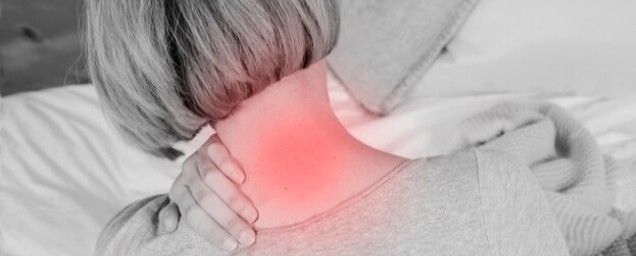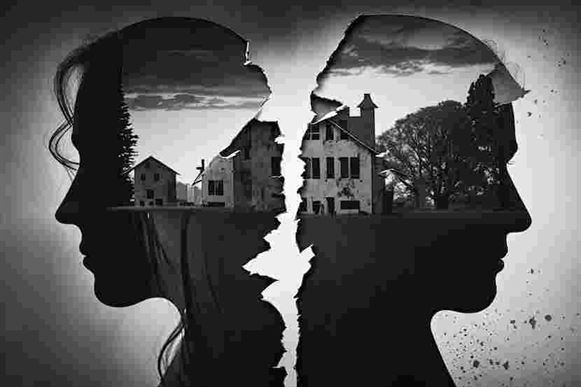
Relationship Between Chronic Pain and Mental Health

Relationship Between Chronic Pain and Mental Health
Chronic pain, a persistent discomfort that extends beyond the expected healing time, disrupts daily life and affects work, relationships, and overall well-being. But can chronic pain cause depression? This question sits at the heart of understanding the complex relationship between chronic pain and mental health.
Can chronic pain cause depression?
The link between chronic pain and depression is bidirectional—each can exacerbate the other. Living with persistent pain often leads to a sense of hopelessness and frustration, contributing to the development of depressive symptoms. Conversely, individuals with depression may experience heightened sensitivity to pain, intensifying their perception of discomfort.
Studies have shown that individuals with chronic pain are at a significantly higher risk of developing depression, with prevalence estimates ranging from 30% to 50%. This increased risk can be attributed to several factors that answer the question can depression cause depression.
- The Stress of Chronic Pain: Chronic pain is a persistent stressor, taxing the body's emotional and physical resources. This constant stress can deplete neurotransmitters like serotonin and norepinephrine, crucial in regulating mood.
- Social Isolation and Withdrawal: Chronic pain can significantly hinder mobility and limit participation in social activities, leading to social isolation and a sense of loneliness. These factors can further contribute to the development of depression.
- Negative Thoughts and Beliefs: Chronic pain can foster negative thoughts and beliefs about oneself and one's future, perpetuating a cycle of negative emotions.
Chronic Pain and Anxiety:
Anxiety is another common companion of chronic pain. The uncertainty of when pain will strike or how severe it will be can create a constant state of apprehension. This heightened sense of alertness and worry can further intensify the perception of pain, forming a cyclical relationship between chronic pain and anxiety.
Anxiety often accompanies chronic pain, exacerbating the emotional burden. The constant fear of pain, the uncertainty of the future, and the fear of losing independence can trigger anxiety symptoms, such as excessive worry, restlessness, and panic attacks.
Impact on the Brain:
The brain plays a central role in the intricate relationship between chronic pain, depression, and anxiety. The brain's pain processing pathways are closely linked to the regions responsible for regulating emotions, such as the amygdala and the prefrontal cortex. Chronic pain can alter the brain's activity in these regions, leading to increased sensitivity to pain and heightened emotional vulnerability.
Chronic pain induces changes in the brain that extend beyond the sensory and emotional experience of pain. Neuroimaging studies have revealed alterations in brain structure and function in individuals with chronic pain. The areas implicated include those associated with emotional regulation, such as the amygdala, and those involved in pain processing, like the prefrontal cortex.
Neuroplasticity, the brain's ability to reorganise itself, is affected by chronic pain. Prolonged pain signals can lead to maladaptive changes, amplifying pain perception and compromising the brain's natural pain modulation systems. This may contribute to the persistence of both physical symptoms and their emotional counterparts.
Breaking the Cycle: Towards Effective Treatment
Addressing chronic pain, depression, and anxiety requires a comprehensive approach that recognises the interconnectedness of these conditions. Treatment modalities often involve a combination of:
- Pain Management: Effective pain management strategies, such as physical therapy, medication, and cognitive-behavioural therapy (CBT), can help alleviate pain, reduce stress, and improve daily functioning.
- Psychotherapy: Psychotherapy can help individuals with chronic pain develop coping mechanisms for managing pain, identify and challenge negative thoughts, and improve emotional regulation.
- Antidepressants: Antidepressants can be effective in treating both depression and chronic pain by modulating neurotransmitter levels and reducing pain sensitivity.
- Lifestyle Modifications: Maintaining a healthy lifestyle, including regular exercise, a balanced diet, and adequate sleep, can promote overall well-being and enhance treatment outcomes.
Conclusion
Chronic pain is not merely a physical ailment; it has far-reaching implications for mental health and brain function. Recognising and addressing the intricate connections between chronic pain, depression, anxiety, and the brain is crucial for comprehensive and effective management. A holistic approach that considers both the physical and emotional aspects of chronic pain can significantly improve the quality of life for those affected by this challenging condition. Everyone experiences pain at some point, but in people with depression or anxiety, pain can become particularly intense and hard to treat. Understanding the intricate link between chronic pain and mental health is crucial. By recognising that "Can chronic pain cause depression?" is a valid and pressing concern, we can embrace a holistic approach to manage both physical and emotional aspects, ultimately improving the quality of life for those with chronic pain.
Articles
Build your awareness and get inspired with our researched articles on how you can strengthen your well-being
Popular Topics
An OTP has been sent to the email address
provided.
Please check your Inbox and Spam folders.

What Would You Like to Speak with a Specialist About?
Mental Fitness Journey starts Now!
Chearful Connects you with Top-tier Qualified Wellness specialists for the Price of a cup of Coffee!

Next Steps
- A Client Team member will reach out to you to schedule a session with the most suitable specialist.
- You will receive an email with a 10% Discount Code* for your 1st session.
- We invite you to Explore the Platform & Sign Up today! *Upto a maximum of $10 discount on a session purchased




 1604 Read
1604 Read

.jpg)


.jpg)












